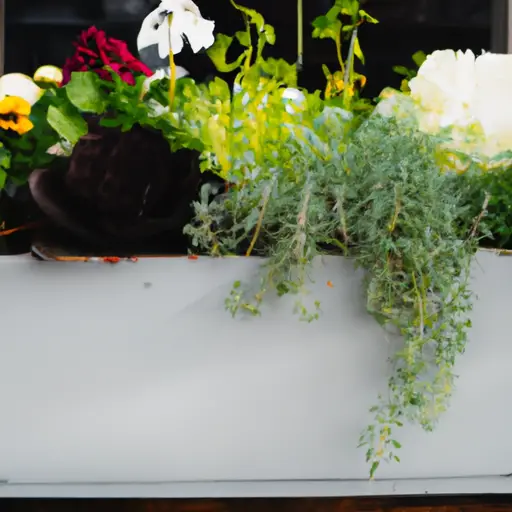Go Green and Sustainable with Eco-Friendly Container Gardens
In recent years, the concept of sustainability has gained immense popularity, with individuals and communities striving to minimize their impact on the environment. One way to contribute to this movement is by embracing eco-friendly container gardening. Container gardens offer a myriad of benefits – they maximize limited space, allow for convenient gardening in urban areas, and provide an opportunity to create a sustainable, green oasis right at your doorstep.
1. Utilizing Recycled Containers:
When starting your eco-friendly container garden, it is essential to consider the materials used for your pots. Opt for containers made from recycled materials such as repurposed plastic bottles or old wooden crates. These containers not only serve their purpose but also reduce waste by giving a new life to discarded items.
2. Sustainable Soil Options:
Choosing the right soil mix is crucial for ensuring the success of your container garden. Consider using organic potting mixes or compost-based soils that are free from synthetic chemicals or genetically modified organisms (GMOs). These alternatives are not only better for your plants but also support sustainable agricultural practices.
3. Native Plant Selection:
Selecting native plants specifically adapted to your region’s climate conditions has numerous benefits. Native plants thrive in their natural habitat, requiring minimal maintenance and reducing the need for excessive watering or chemical treatments. Moreover, they provide essential habitats and food sources for local wildlife like birds, bees, and butterflies.
4. Companion Planting:
Implementing companion planting techniques within your container garden can enhance its sustainability further. Certain plants benefit from being grown together due to their symbiotic relationship – one plant repels pests that may harm the other while another plant enriches the soil with necessary nutrients. By carefully selecting complementary plant varieties, you can create an ecosystem within your container garden that promotes healthy growth while reducing reliance on synthetic pesticides or fertilizers.
5. Water Conservation:
Water scarcity is a pressing issue globally; therefore, it is vital to employ water-conserving strategies within your container garden. Utilize self-watering containers, which have built-in reservoirs that supply water to the plants as needed, reducing water waste. Additionally, consider using mulch on the soil surface to conserve moisture and prevent evaporation.
6. Composting:
Composting is an excellent way to recycle kitchen scraps and yard waste while providing nutrient-rich soil amendments for your plants. By starting a compost pile or incorporating a small composting system within your container garden, you can reduce the amount of organic waste sent to landfills while improving the health of your plants in an eco-friendly manner.
7. Natural Pest Control:
Instead of resorting to chemical pesticides that harm beneficial insects and pose risks to human and animal health, opt for natural pest control methods in your container garden. For example, attracting beneficial insects like ladybugs or encouraging birds to visit your garden can help control pests naturally. You can also make organic insecticidal soaps or sprays using simple ingredients such as neem oil or garlic.
8. Conservation through Harvesting:
Container gardens provide an opportunity for sustainable, homegrown produce right at your fingertips. By harvesting only what you need and allowing the plants to continue growing, you can avoid wastage while enjoying fresh fruits, vegetables, or herbs throughout the growing season. This practice reduces reliance on commercially grown produce that often requires extensive transportation and packaging.
9. Education and Community Involvement:
Eco-friendly container gardening is not only a personal endeavor but also an opportunity for community engagement and education. Sharing your knowledge with friends, neighbors, or local schools encourages others to adopt sustainable practices. Organizing community gardening events or workshops promotes environmental consciousness and fosters a sense of camaraderie among like-minded individuals.
In conclusion, embracing eco-friendly container gardening is a fantastic way to contribute towards sustainability efforts while creating a greener space for yourself and your community. By utilizing recycled containers, sustainable soil options, selecting native plants, employing companion planting techniques, conserving water, composting, using natural pest control methods, embracing conservation through harvesting, and engaging in community education, you can go green and sustainable with your very own eco-friendly container garden. So start today and watch your garden flourish while leaving a positive impact on the environment!













